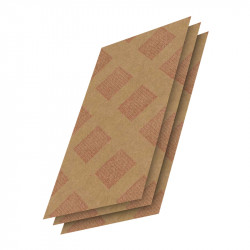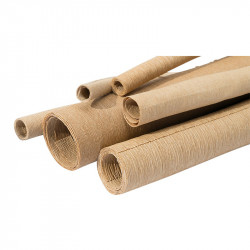Vous devez être connecté
-
WróćX
-
Composants
-
-
Category
-
Semi-conducteurs
- La diode
- Les thyristors
- Modules de puissance isolés
- Ponts redresseurs
-
Transistors
- Transistors | GeneSiC
- Modules MOSFET SiC | Mitsubishi
- Modules MOSFET SiC | STARPOWER
- Modules MOSFET SiC ABB
- Modules IGBT | MITSUBISHI
- Modules de transistors | MITSUBISHI
- Modules MOSFET | MITSUBISHI
- Modules de transistors | ABB
- Modules IGBT | POWEREX
- Modules IGBT | INFINEON (EUPEC)
- Composants semiconducteurs en carbure de silicium
- Przejdź do podkategorii
- Circuits de commande
- Blocs de puissance
- Przejdź do podkategorii
- Transducteurs électriques
-
Composants passifs (condensateurs, résistances, fusibles, filtres)
- Résistances
-
Fusibles
- Fusibles miniatures pour c.imp. série ABC et AGC
- Fusible rapides tubulaires
- Cartouches de courbe GL/GG et AM
- Cartouches ultrarapides
- Fusibles à action rapide (norme britannique et américaine)
- Fusibles à action rapide (norme européenne)
- Fusibles de traction
- Cartouche de haute tension
- Przejdź do podkategorii
-
Condensateurs
- Condensateurs pour moteurs
- Condensateurs électrolitiques
- Condensateurs de type snubbers
- Condensateurs de puissance
- Condensateurs pour circuits continus
- Condensateurs de compensation de puissance
- Condensateurs de haute tension
- Condensateurs pour chauffage par induction
- Condensateurs pour impulsions
- Condensateurs DC LINK
- Condensateurs pour circuits AC/DC
- Przejdź do podkategorii
- Filtres anti-interférences
- Supercondensateurs
- Protection contre les surtensions
- Filtres de détection des émissions TEMPEST
- Parafoudre
- Przejdź do podkategorii
-
Relais et contacteurs
- Théorie relais et contacteurs
- Relais statiques triphasés
- Relais statiques CC
- Régulateurs, circuits de commande et accessoires
- Démarrages progressifs et contacteurs inverseurs
- Relais electromécaniques
- Contacteurs
- Commutateurs rotatifs
-
Relais statiques monophasés
- Relais semi-conducteurs AC monophasés, série 1 | D2425 | D2450
- Relais à semi-conducteurs CA monophasés, séries CWA et CWD
- Relais à semi-conducteurs CA monophasés des séries CMRA et CMRD
- Relais à semi-conducteurs CA monophasés, série PS
- Relais semi-conducteurs AC double et quadruple, série D24 D, TD24 Q, H12D48 D
- Relais statiques monophasés, série GN
- Relais à semi-conducteurs CA monophasés, série CKR
- Relais AC monophasés SÉRIES ERDA ET ERAA pour rail DIN
- Relais CA monophasés pour courant 150A
- Relais à semi-conducteurs doubles intégrés à un dissipateur thermique pour un rail DIN
- Przejdź do podkategorii
- Relais statiques monophasé pour c.imp.
- Relais d'interface
- Przejdź do podkategorii
- Composants inductifs
- Radiateurs, varistances, protections thermiques
- Ventilateurs
- Climatiseurs et accessoires d'armoires électriques
-
Batteries, chargeurs, blocs d'alimentation tampon et onduleurs
- Batteries et Chargeurs - théorie
- Batteries Li-ion et non-standards. Systèmes de gestion des batteries (BMS)
- Batteries
- Chargeurs de batteries et accessoires
- Alimentation de secours UPS et alimentation tampon
- Convertisseurs de tension et accessoires pour photovoltaïque
- Stockage d'Energie
- Réservoirs de carburant
- Batteries lithium-ion
- Przejdź do podkategorii
-
Automatique industrielle
- Élévateurs Spiralift
- Pièces pour drones Futaba
- Interrupteurs de fin de course, micro-rupteurs
- Capteurs et convertisseurs
- Pyromètres
- Compteurs, Relais temporisés, Indicateurs de tableau
- Appareils industriels de protection
- Signalisation lumineuse et sonore
- Caméra thermique
- Afficheurs à LED
- Boutons et commutateurs
- Przejdź do podkategorii
-
Câbles et chemins de câbles
- Fils
- Passe-câbles et coupleurs
- Fils de Litz
-
Câbles pour les applications spéciales
- Câbles de compensation
- Câbles pour thermocouple
- Câble pour sondes Pt
- Câbles multi-brins temp. -60C do +1400C
- SILICOUL câbles moyenne tension
- Câbles d'allumage
- Câbles chauffants
- Câble mono-brin temp. -60C do +450C
- Câbles pour chemins de fer
- Câbles chauffants Ex
- Câbles pour l'industrie de la défense
- Przejdź do podkategorii
- Gaines
-
Tresses
- Tresses plates
- Tresses rondes
- Tresses très souples - plates
- Tresses très souples - rondes
- Tresses cuivre cylindriques
- Tresses cuivre cylindriques et protection
- Bandes de mise à la terre souples
- Tresses isolantes en PVC - temp. 85°C
- Tresses plates en aluminium
- Kit de liaison - tresses et gaines
- Tresses en acier
- Przejdź do podkategorii
- Equipement pour la traction
- Cosses
- Barres flexible isolées
- Barre flexibles multicouches
- Systèmes de traçage des câbles
- Przejdź do podkategorii
- Contactez-nous !
-
Semi-conducteurs
-
-
- Fournisseurs
-
Applications
- Alimentations (UPS) et systèmes de redressement
- Automatisation HVAC
- Automatisation industrielle
- Chauffage par induction
- Composants pour atmosphères potentiellement explosives (EX)
- Dispositifs de protection industriels
- Énergétique
- Energy bank
- Équipements pour armoires de distribution, de contrôle et de télécommunications
- Impression
- Machines à souder et machines à souder
- Machines de séchage et de traitement du bois
- Machines pour le thermoformage des plastiques
- Machines-outils CNC
- Mesure et régulation de la température
- Mesure et régulation de la température
- Mines, métallurgie et fondation
- Moteurs et transformateurs
- Traction de tram et de chemin de fer
- Variateurs CA et CC (onduleurs)
-
Installation
-
-
Inducteurs
-
-
Appareils à induction
-
-
Service
-
- Contact
- Zobacz wszystkie kategorie
Matériaux isolants pour transformateurs à l'huile
Dacpol Company offers an extensive range of flexible insulating materials, which are manufactured in B 130oC to H 180oC temperature classes. These materials are characterized by good dielectric properties and are delivered in rolls or sheets. There is also a...
Dacpol Company offers an extensive range of flexible insulating materials, which are...
Catégories
| Image | Voir le produit | Fabricant no | ||||
|---|---|---|---|---|---|---|
| -- |

|
-- | Papier de transformateur | VOIR | -- | En commande |
| -- |

|
-- | Tubes en papier | VOIR | -- | En commande |
Dacpol Company offers an extensive range of flexible insulating materials, which are manufactured in B 130oC to H 180oC temperature classes. These materials are characterized by good dielectric properties and are delivered in rolls or sheets. There is also a possibility to cut them or to deliver the finished slot insulation. Main usage fields are transformers and electric engines.
Insulating materials can be also delivered in the form of tapes. Such electro insulating tapes, which are used for production of electric and electronic components, should have the right electric and mechanical properties, and correspond to the required technical characteristics. Behind the simple reel of the adhesive tape there are complex material science problems, technologies and production processes.
Electro insulating adhesive tapes are used for:
- insulation,
- protection,
- labeling,
- mounting.
Insulation properties of the tape are determined by the type and thickness of the tape warp, insulation resistance, electrical durability of the warp’s dielectric, and the tape’s resilience to aging. One of the important indicators in the choice of the insulating tape is the consideration of the occurrence of electrolytic corrosion of the conduit in response to the chemical reaction with the tape’s components in the presence of electric potential, humidity and other environmental factors. Electrolytic corrosion can lead to breaching of the conduit or to puncturing of the enameled insulation of the thin wires e.g. in the reel of the transformer’s coil. To decrease the possibility of corrosion, the level of sulfur and hydrogens in the tape’s material should be lowered.
The protection of the products from various types of the damages is guaranteed by several of the tape’s parameters, such as insulation resistance, immunity to solvents, work temperature range, inflammability, and the resilience to ripping.
Many producers use the tapes for colorful labeling of their products and as an indication material. In this situation it is important for the tape not to fade, maintain good adhesive properties and usefulness for the labelling purposes. Lastly, the tapes are used for components and cable mounting. In this case, the most often considered parameters are: resilience to ripping/extending and their adhesive properties.
We offer impregnating paint in B 130, F 155 and H 180oC classes. We deliver them in the 1L, 5L, 20L containers and 200L barrels.
Main application of the paints is impregnation of the engine and transformer reels, conducted through: immersion, submerging, vacuum method, and droplet method.
We also offer polyurethane and epoxy resins. Our resins are bi-component. The polymerization of the resins can happen in the temperature of the environment or in a dryer in the increased temperature.
We deliver resins in 1L, 5L, 20L packages and 200L barrels. Main applications are the flooding of the electronic cables, electronic components and transformers.



